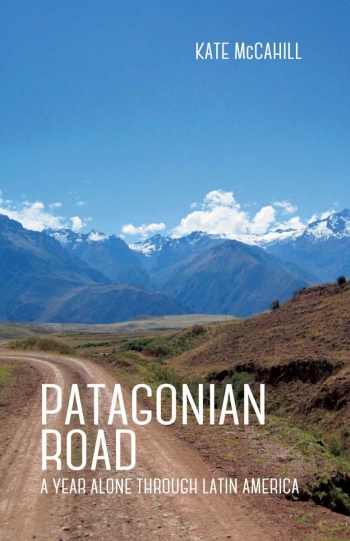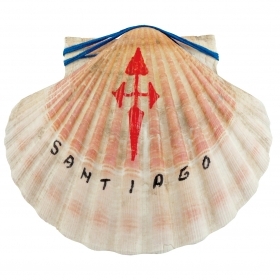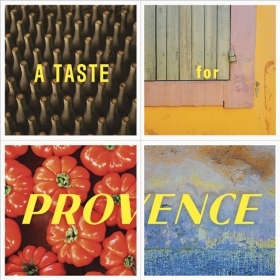When she was 26, Kate McCahill ’06 grew restless with her “good, sturdy” office job in Boston, her first real apartment, and the passing years, slipping one into the other. When Wellesley awarded her the Mary Elvira Stevens Traveling Fellowship, she quit that job, packed up that apartment, and said good-bye to her girlfriend. She flew to Guatemala City, Guatemala, where she began learning Spanish. Through a winter in El Salvador and Nicaragua, she acclimated to life on the road and absorbed the new language. With spring came Ecuador, Peru, and enough mastery of her new life to transition from student to teacher of English in a local elementary school. Summer brought loneliness in Bolivia; fall, sisterly roommates in Argentina. The year as a whole delivered this lyrical, earnest memoir.
The book’s title nods to the journey that inspired it: Paul Theroux’s yearlong trip from Boston to Argentina, also spanning winter to fall, described in his 1979 book The Old Patagonian Express: By Train Through the Americas. However, for all the similarities shared with Theroux’s travels, a few fundamental differences inform McCahill’s story and style.

McCahill traveled in the age of technology and discount flights, cheap enough to pop back to the States once, briefly, for a wedding in New Mexico. She could sustain her relationships through video calls, simultaneously bridging the distance between continents and reminding her, every night, of just how far she away she was. McCahill was younger than Theroux when he traveled. Her book is weighted by longing, buoyed by dreaming, raw with questions. And she’s a woman. At the edges of every story are gendered interactions, a fleeting but terrifying assault, the search for a community of female friends. At the outset, a self-consciousness; by the end, a strength.
This is not to say that McCahill’s book only resonates in the context of Theroux’s. Not at all. Patagonian Road is a sprawling tale built of present-tense vignettes and vivid flashbacks, rooting the year of discovery in deeply personal ground. Her memoir stands alone.
McCahill’s Finnish grandmother immigrated to the United States when she was 26, the same age McCahill was during her travels. With the older woman’s experiences haunting her granddaughter’s, the stories become an examination of what drives us to leave, what we are looking for when we land, and what makes a place home. The writing captures the lust and loss of our second coming-of-age, the time when we first recognize that we know enough to know that we can’t ever know everything.
From Hilary MacGregor ’88 comes another tale of South American adventure. MacGregor and her husband also felt an urge to leave behind stability—their jobs and home and interminable domestic rhythms. Their urge came, though, when they were well into their marriage, with two sons, aged 9 and 11.
After a rush of arrangements, they packed one bag each and set off for a whirlwind two months—language school in Mexico, snorkeling in the Galápagos, boating in the Amazon. The resulting book is a patchwork of journal entries from each member of the family, practical tips, and MacGregor’s post-trip impressions. The writing is triumphant, playful, the voice of someone exhilarated by escape, and MacGregor welcomes the reader along on the ride.
At every turn in her family’s journey, she extends a helping hand to her audience, outlining items to bring, questions to ask yourself, solutions to common problems. She’s honest about the challenges—while acknowledging that challenges will be unique to each traveler—and reflective about the solutions. By the book’s end, we are emotionally emboldened—and practically prepared to embrace our own version of the author’s adventure.
Erickson is a TV writer based in Los Angeles, where she has written for Copper (BBCA), Mr. Robot (USA), and Fear of the Walking Dead (AMC). She can be found on Twitter at @katefromky.








We ask that those who engage in Wellesley magazine's online community act with honesty, integrity, and respect. (Remember the honor code, alums?) We reserve the right to remove comments by impersonators or comments that are not civil and relevant to the subject at hand. By posting here, you are permitting Wellesley magazine to edit and republish your comment in all media. Please remember that all posts are public.